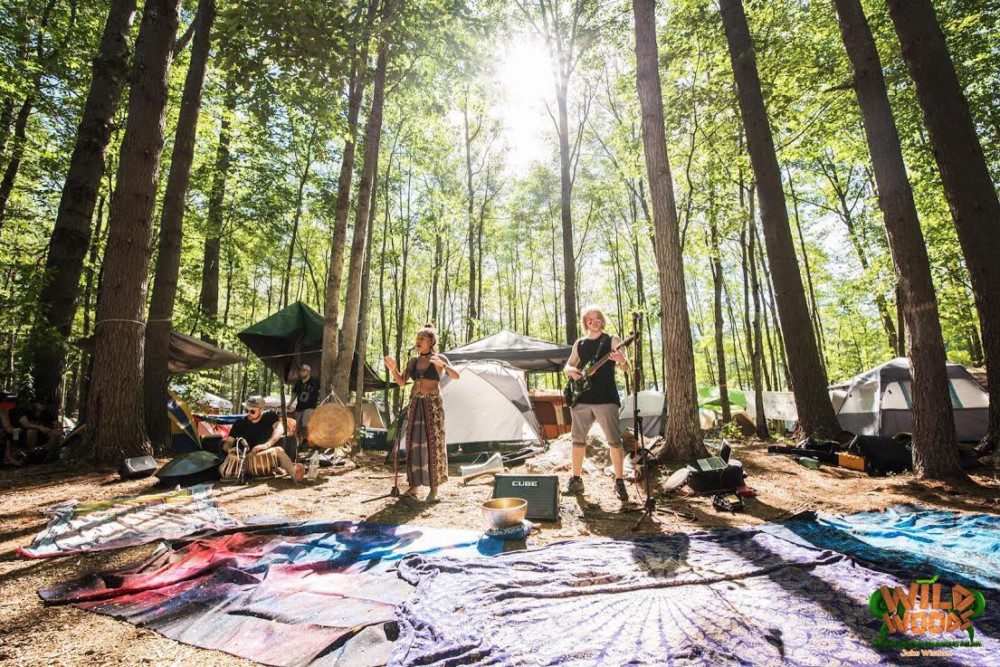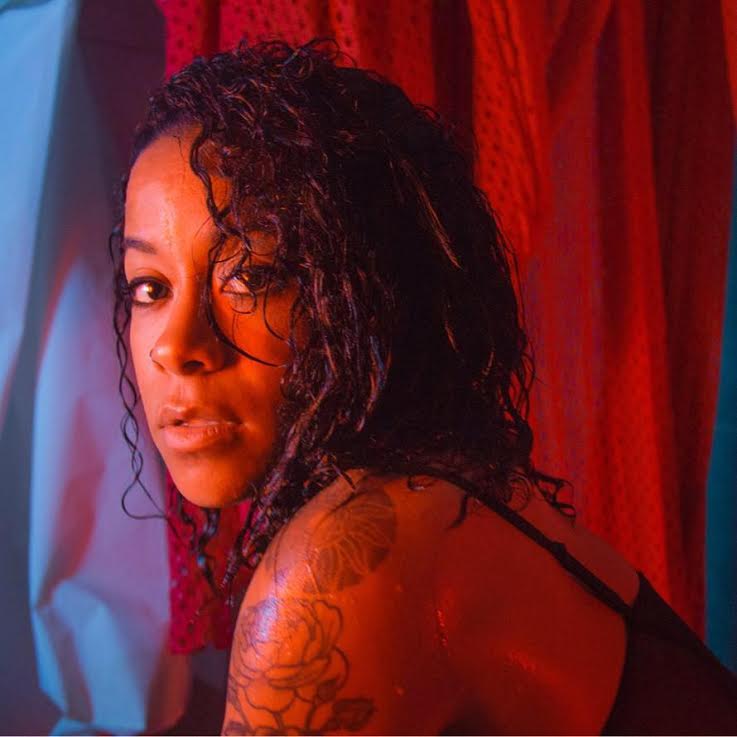
Janeth Gonda is a woman of many trades. When I first met Janeth, she was working at the ticket window of Brooklyn Bowl. Since then, Janeth has become the singer and songwriter of her own project Espejismo that has toured Colombia as well as having played out in Brooklyn frequently, launched a popular Brooklyn DIY venue called Barranquilla, bartended, modeled and danced professionally, and is now also working at BUST Magazine.
On a personal level, Janeth is spirited and energetic (she has to be with all of her jobs and hobbies). Adopted as a baby, proud of her heritage and curious of her background, Janeth embarked on a soul-searching journey to the country of her birth a few years ago: Colombia. She has consistently found ways to mold her personal struggles into something positive through her art and work. As well as being a workaholic, social butterfly, and lover of people, Janeth is also an animal-lover who has lived with both cats and dogs over the past few years. I wanted to find out how her furry friends fit into the busy bustle of her life!

AF: Tell us a little about your role in the Brooklyn music scene!
JG: Well I first and foremost consider myself a dancer and vocalist. I am currently in a gypsy trip-hop project called Espejismo. I also run a DIY event space called Barranquilla Studios. I haven’t been as active with booking shows lately at my space because I have been producing lager events for BUST Magazine. We recently just had a show with Erykah Badu that was super dope.
AF: If you were allowed to have any pet in the world as a little girl— real or mythological— what would you have asked for?
JG: I think I would have just asked for more puppies. I love dogs so much. The other day I saw three golden pups down the street and I literally ran – full out sprinted – to pet them. The owner looked at me like I was crazy, and she wasn’t wrong – I am crazy for pups!
AF: While dancing, what (non-human) animal do you channel the most? Is it the same as the animal you channel while singing, writing, and booking, or are there different species for each?
JG: I am definitely a she-wolf; I’ve always considered myself to be a lone wolf. When I sing I think I am a siren – that’s half animal right? I don’t know…. is a mermaid an animal?

AF: At what age did you develop an interest in music?
JG: I have been singing since I was like three years old. From fourth grade on, I sang the National Anthem at all the town events, competed in talent shows, etc. I joined a band and started doing promotions and PR when I was 16. Music has always been one of the biggest parts of my life.
AF: How have your experiences growing up shaped your current path in life?
JG: Well I grew up in an all-white town in Massachusetts. As much as I love some of the people from there, to be honest, I had a pretty harsh and racist experience growing up (besides my amazing family of course). However, I do not regret or resent anyone for it – in fact I am thankful. It taught me how not to be ignorant from a very young age, to be strong, independent and most importantly inclusive and compassionate. I think that this plays a huge role in the way I conduct myself now. I make an extremely conscious effort to create events that are inclusive and to create spaces where underrepresented people can have a voice.
AF: You have been very open and encouraging to others about their experiences in regards to your adoption and struggles with self-image and mental health. How do you work to channel this into your art?
JG: Well the majority of my earlier music with Espejismo is extremely dark and honest. A lot of my songs talk about my issues with mental health in a way I typically don’t hear when I am out at shows. I have always been an extremely honest person; I showcase my failures along with my successes. I think it is crucial to talk about issues and subject matters that people typically shame. Mental health needs to become normalized so people aren’t afraid to ask and seek help. I truly do feel like writing music about this makes a difference. It is always so awesome to come off stage from playing a show and have girls come up to you and thank you for singing about and expressing things that they couldn’t. Nowadays, as I find myself growing into my womanhood, my songs are a bit lighter: about sexuality, being queer, and living my best life. I think it is important to have well-rounded art showcasing both the light and darkness.

AF: You have also been very active in the feminist cause. Do you find that you are treated differently in the music industry as a woman? How do you combat these frustrations in your daily work?
JG: Yes and no. I would say that most of the heat I have faced has been because I am a woman of color. But to be honest, even when I do get treated differently, I don’t stand for it. I am extremely vocal with what I need in order to feel respected in my space. I am not afraid to stand up to anyone who is spewing toxicity. I think it is so important to handle things as they happen – don’t let things fester, face them head on, stop the ignorant bastards in their tracks! I have always said this, but I would rather walk alone than with someone who doesn’t see me, respect me, or add positively to my life. So again, even when I do face these frustrations it is usually just a blessing because I get to leave those people and situations behind. I am also lucky to have BUST Magazine as a platform, for I get to use it to continuously push content of underrepresented people.


